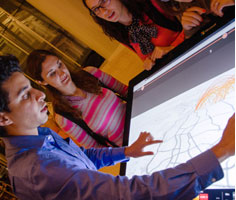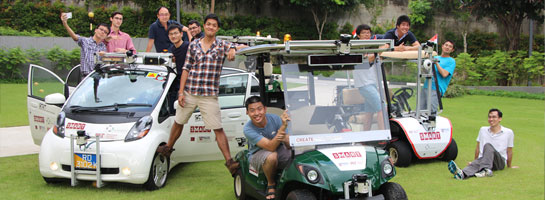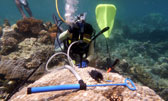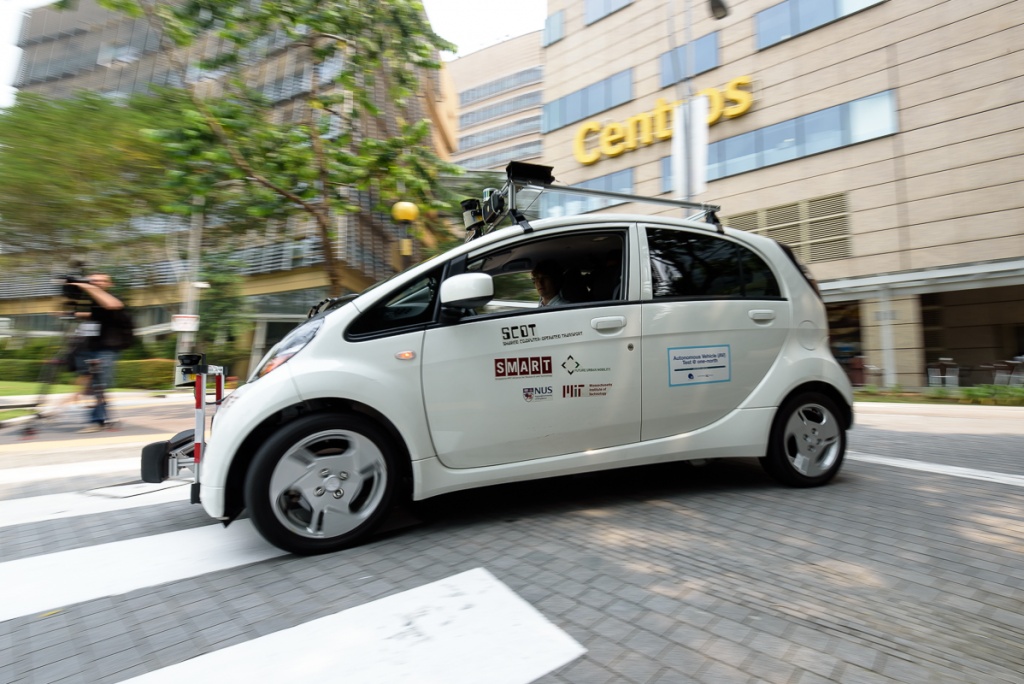




 SMART self-driving car at the 12km network within One-North
SMART self-driving car at the 12km network within One-North
Kyodo News reporters recently took a ride in an autonomous car that is being tested by SMART at the 12km network within One-North.
Here's an excerpt of the English Kyodo News report, which was also published in the Bangkok Post:
"We normally do 20-30 km" during test drives, said Eng You Hong, post-doctoral researcher in the SMART project who was one of two engineers in the car during the demo ride. As a safety precaution, there must always be an engineer behind the wheel and another engineer monitoring the software at this stage of the trials on public roads.
The car had been retrofitted with LIDARS, which act as sensors by emitting laser lights that are bounced back when they hit objects, enabling the car to make sense of its surroundings.
The car has a "270-degree field of view, much more than our human eyes can detect," Eng said.
The vehicle has also been fitted with a camera and a computer which is linked to a motor that controls the steering wheel and brake. It is able to slow down to avoid hitting unexpected obstacles such as jay walkers who might suddenly appear in its path.
Still, there was a button near the driver's seat to push to switch between automatic and manual driving mode. During the demo ride, the driver often placed his hands there as a safety precaution so that he could immediately take control in case of an emergency.
The ride, although generally smooth, was somewhat jerky at times. And to overtake another car, the driver needed to take control manual as the car is not yet able to perform that function. "We are still developing the algorithm," Eng said.
Traffic junctions and crossings also still post major problems.
MIT Professor Daniela Rus, a principal investigator in the SMART project, said it is a big challenge for autonomous vehicles to cope in a real-life environment where "some of the cars are driven by people and some of the cars are driven automatically."